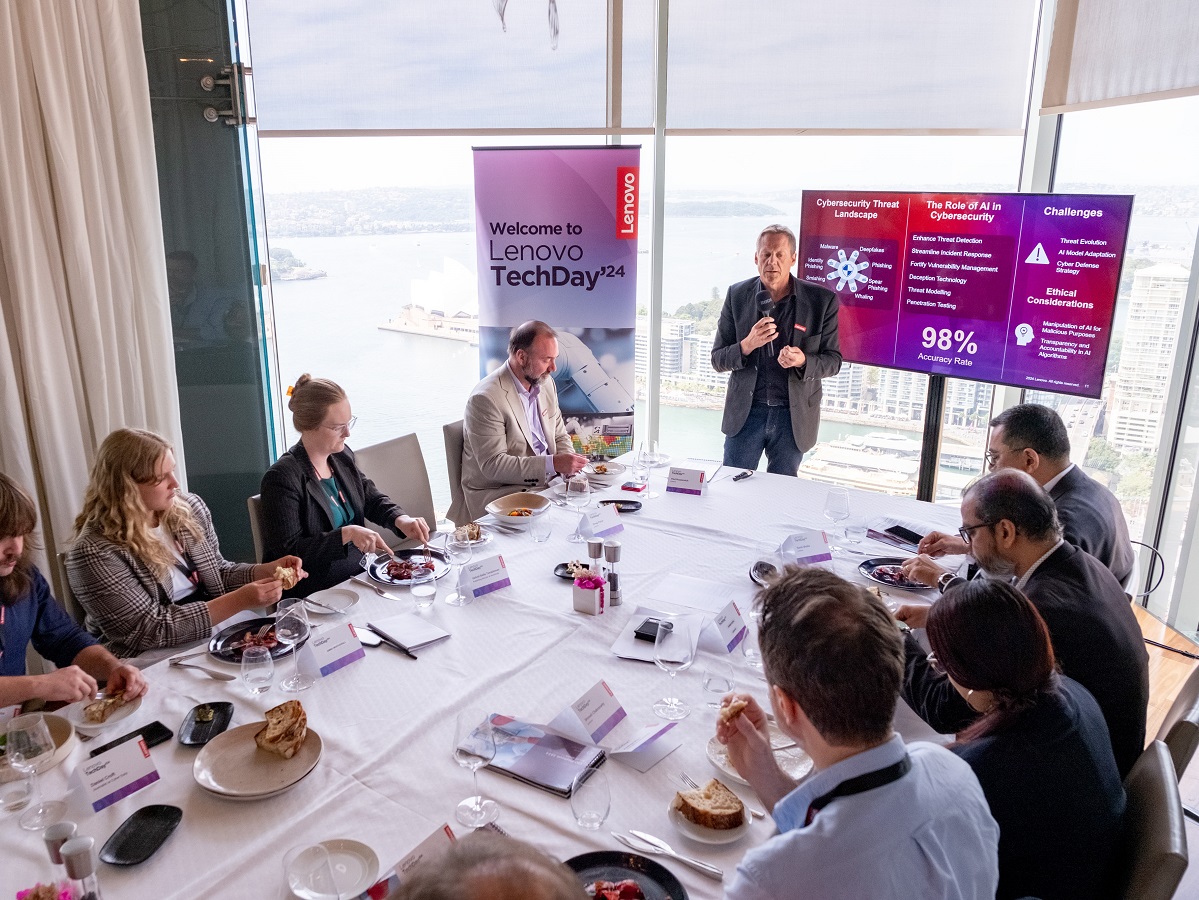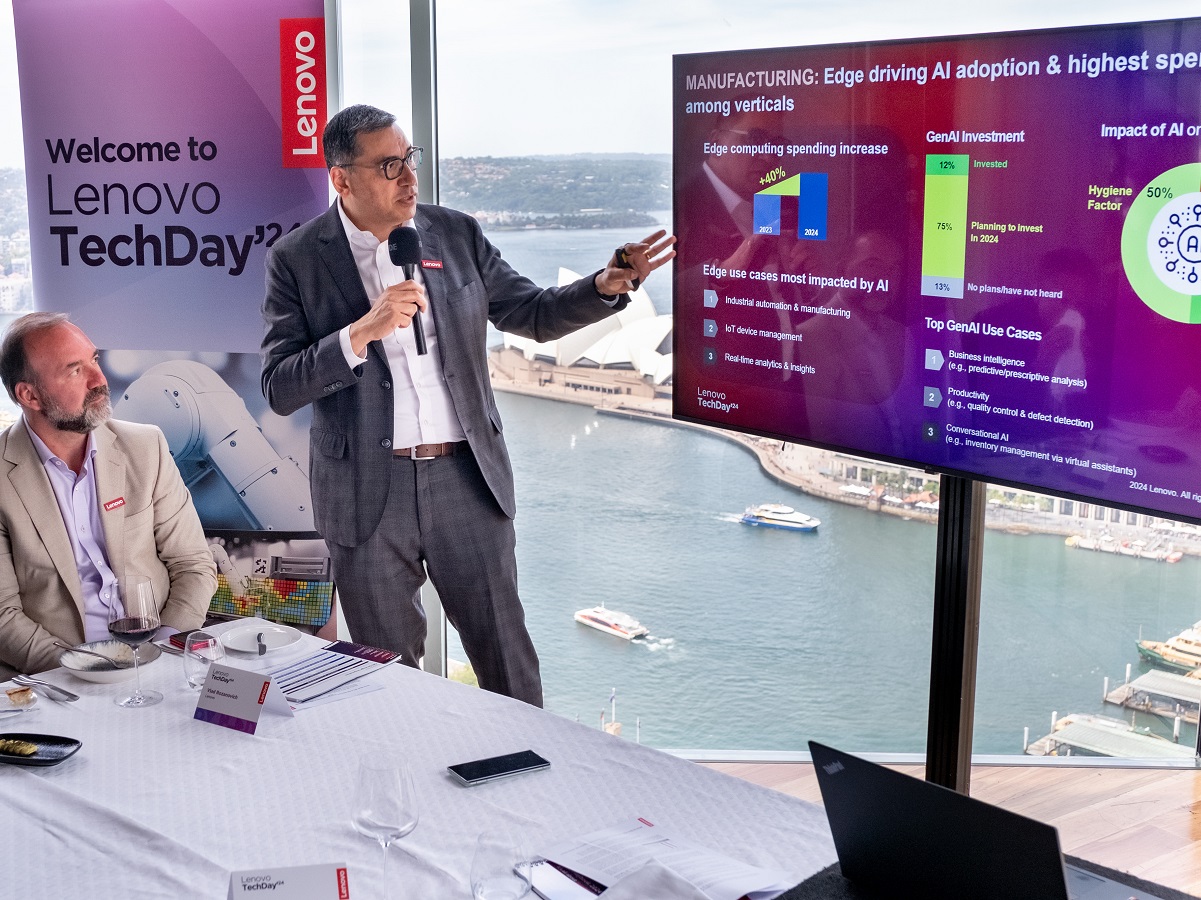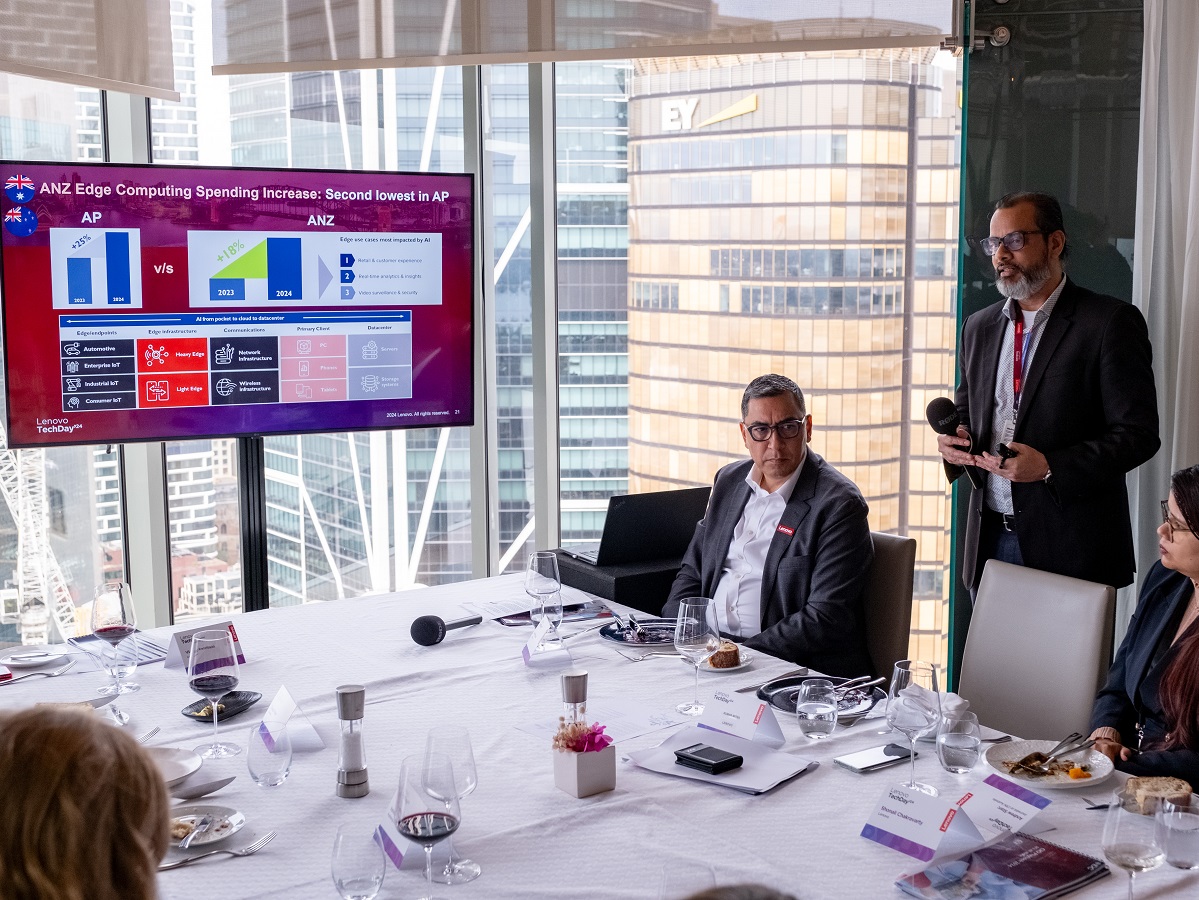Organisations in the Asia Pacific (AP) region plan to increase AI spending by 45% in 2024 compared to 2023, according to the newly released Lenovo CIO Playbook 2024.
The report shows a shift in CIO priorities from last year with AI topping the list. Notably, revenue and profit growth have shifted from the top priority in 2023 to number three in 2024, while customer experience and satisfaction have surged into the top two priorities.
However, while business leaders want to prioritise GenAI to enhance customer experience and drive outcomes, CIOs express cautious optimism. Ranking GenAI as the fourth tech priority, CIOs are prioritising AI technologies that address security, infrastructure, and talent considerations.
Lenovo Infrastructure Solutions Group (ISG) managing director for Central Asia Pacific (CAP) and Australia and New Zealand (ANZ), Kumar Mitra (feature image) said, “The AI Playbook echoes what we have been hearing from customers – CIOs in ANZ are most confident about AI, with 83% expressing certainty that it will create a competitive advantage, and 38% of them consider it to be a game changer for their organisation.
“Higher investments in GenAI and machine learning, followed by deep learning systems underscore their desire to elevate operational efficiency, security, decision-making processes and customer experiences.”
While Japan (2%) and ANZ (2%) lag in GenAI investments made in 2024 behind ASEAN (11%), India (28%) and Korea (33%), 79% CIOs in Japan and 77% in ANZ are planning to invest in GenAI.
Monitoring AI misuse/hallucinations (incorrect predictions) (35%) and model capability limitations (27%) are the top two concerns for Australian CIOs, while job security (45%) and lack of requisite training in AI tools (38%) are key pain points.

The survey also reveals that AP companies will adopt a balanced approach to AI workload deployment. On average, 31% of AI workloads will be deployed on the public cloud, 28% on the private cloud, and an additional 28% on hybrid cloud solutions.
Lenovo senior vice president – chief security officer, Doug Fisher (pictured above) said, “The allocation of 13% of AI workloads at traditional data centres signifies a growing recognition of the importance of edge computing, bringing AI capabilities closer to the source of data generation. Interestingly, three-quarters (76%) of CIOs in Australia are also already using AI to enhance their security framework with 13% planning to invest.”

Lenovo ISG president of AP, Sumir Bhatia (pictured above) added, “We are bringing AI everywhere through our pocket-to-cloud solutions, and an ecosystem of 50+ ISVs and 165+ AI solutions. With domain experts and smarter technologies, we’re powering ‘AI for All’ and transforming the customer experience.”
With Edge devices set to generate large volumes of real-time data, new use cases for AI models will emerge. Accordingly, Australian CIOs feel retail and customer experience (40%) and real-time analytics (38%) use cases will experience the most significant impact from AI.

